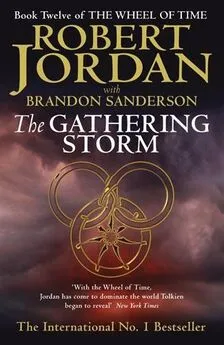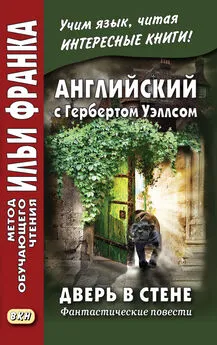Robert Low - The Whale Road
- Название:The Whale Road
- Автор:
- Жанр:
- Издательство:неизвестно
- Год:неизвестен
- ISBN:нет данных
- Рейтинг:
- Избранное:Добавить в избранное
-
Отзывы:
-
Ваша оценка:
Robert Low - The Whale Road краткое содержание
A band of brothers, committed only to each other, rides the waves, fighting for the highest bidder, treading the whale road in search of legendary relics.
Life is savage aboard a Viking raiding ship. When Orm Rurikson is plucked from the snows of Norway to brave the seas on the Fjord Elk, he becomes an unlikely member of the notorious crew. Although young, Orm must quickly become a warrior if he is to survive.
His fellow crew are the Oathsworn---named after the spoken bond that ties them in brotherhood. They fight hard, they drink hard, and they always defend their own.
But times are changing. Loyalty to the old Norse Gods is fading, and the followers of the mysterious "White Christ" are gaining power across Europe. Hired as relic hunters, the Oathsworn are sent in search of a sword believed to have killed the White Christ. Their quest will lead them onto the deep and treacherous waters of the whale road, toward the cursed treasure of Attila the Hun and to a challenge that presents the ultimate threat.
Robert Low has written a stunning epic, a remarkable debut novel. Not only a compelling narrative, The Whale Road also brings a new Viking landscape stretching from Scotland through the Baltic and on to Istanbul.
________________
"A company of warriors, desperate battles, an enthralling read."
---Bernard Cornwell
The Whale Road - читать онлайн бесплатно ознакомительный отрывок
Интервал:
Закладка:
'Keep your lips fastened round Einar. He is a dangerous man when his brows come together.'
So, in the star-glimmered dark before dawn, I found myself assembled with the others, sword in hand, clutching Thorkel's shield with its swirling design of rune snakes, shivering and sick to the pit of my stomach.
We helped shove the Fjord Elk back off the shingle before the tide went out and stranded it there for hours. My father, of course, was staying behind since he was shipmaster and Pinleg would need him if they came under attack. So was Valgard, in case the ship was damaged. The eight others who stayed were hard enough men, but were all those who, for one reason or another, were not the fastest on their feet.
I was surprised that Skapti was going with the main body—not that I was going to say aloud that he was too fat to move fast—and more surprised than that to see him wearing a mail hauberk. A few others had mail, too, but had left off the padding of spare tunics usually worn beneath it.
Later, of course, I learned that no clever man expecting a fight and having good mail will willingly give it up and, since the easiest way of carrying it is to wear it, that's what they did.
The two who were leaving said their farewells, hefted their bundles and packs and struck off in the opposite direction from the one we would take. By the time we reached the Christ temple, they would be far enough away not to be considered part of the act. If they moved fast, of course.
Ulf-Agar had unrolled his mail from the fleece it was kept in, the sheep-grease fending off the rust. I thought to try to mend the rift between us and stepped forward to offer a helping hand as he hefted the ring-heavy mail by the shoulders.
Instead, he slapped my hand away and scowled. This was too much and I felt my hackles rise. Then Illugi Godi stepped between us and ushered me away, talking the while as if nothing had happened.
`Good sword you have there, Orm Ruriksson. Here's a tip, though: run it through the fleece of one of those fresh-killed sheep a few times. It's been splashed on by the sea and that rots metal faster than anything I know. Really, you need a sheath for it, but not a soft leather one, since that rots the metal fast, too. Better one made from wood, with a sheepskin lining. That way you can use the sheath as a good club if you have to
. . .'
Out of earshot, he clasped my shoulder in friendly fashion and glanced back to where Ulf-Agar's tousled head was emerging from his mail, his arms flailing. 'You meant well, but I fear you've made things worse.
It's a thing among mail-wearers that if you can't put it on or take it off unaided you shouldn't have the stuff.
So you just insulted him.'
Ì didn't know,' I said, my heart sinking.
Ì think he knows that,' answered Illugi Godi, 'but it won't help. Some evil gnaws him, and until he beats it to a pulp you and he will always be glaring. Unless you can fight him, I'd steer away wherever possible.'
My father came up as Illugi strode away and, at his questioning look, I told him what had happened. He stroked his chin and shook his head. Ìllugi is a good man, so you can take his advice. Mostly. Like us all, he has his reasons for being in the Oathsworn.'
`What are his?' I demanded and he shut one eye and squinted at me quizzically.
`You want to know a lot. He thinks Asgard is under siege from this White Christ and our gods are asleep.'
Ànd you? What are your reasons?'
He scowled. 'You want to know too much.' Then he forced a smile and produced a round leather helmet.
'One of Steinthor's spares. He picked it up last year, but can't wear it himself.'
It looked fine to me—a little too big, no fastening strap and a nice metal nasal. 'Why can't he wear it?'
My father tapped the metal nose protector. 'He's a bowman. Blocks your sighting, does a nasal. Bowmen all wear helmets without them. And no mail—even half-sleeves snag the string. That's why they stay well out on the edges of a fight and pick people off.' He spat. 'No one likes bowmen—unless they are your bowmen.'
We clasped hands, forearm to forearm. `Stay safe, boy,' he said and turned back to the ship.
Einar, helmeted and mailed and wearing two swords in his belt, shield slung over one shoulder, looked at the assembled men. He handed a spear with a furled cloth on it to skinny Valknut. 'Move steady and quiet.
Stay together—anyone who stops for a piss or a pull on the way risks being left on his own and we won't be going back to find them. We hit fast and hard, collect what we came for and get out. Don't try and carry off anything that weighs more than you. You'll either fall behind or have to leave it in the end.'
He glanced around one more time and nodded, then took the head of our pack and led us at a steady, fast walk up through the trees, into the night-shrouded land, towards the first silvered smear of dawn.
It was a good pace, uphill. No one spoke and there was silence until the pace began to tell in louder, ragged breathing. That and the shink-shink of slung shields on mail, the swish of the bracken underfoot and the odd clink and creak of equipment was all that marked the passage of nearly fifty fully armed men.
After an hour, Einar stopped us. The sky was milk-white, shading to grey towards us. Somewhere behind that, a winter sun fought to claw over the thin, black edge of the world. Trees were outlined in skeletal black—and there was something else.
It was a dark bulk with a tower and the faint, reddish glow of a light. Everyone saw it; there was a general, hushed business of tightening straps, unshipping shields, hefting weapons.
Einar had us take to one knee, then sent Geir and Steinthor off into the night. Briefly silhouetted against the dawn sky for us, they would be invisible to any watcher from the tower. I rubbed dry lips, hearing my breathing magnified by the helmet's cheekpieces into a rasp. That looked like a powerful strong building—
and, as the light grew, you could see other, smaller buildings huddled round it.
Geir and Steinthor slid back. We all listened.
`The light is on the gate in a wooden wall that stretches all round it,' reported Geir, rubbing his dripping bag of a nose. 'The gate is the only way in unless you want to go over seven feet of timbered fence. It was built for defence, was this place.'
He paused, for effect as it turned out, since Steinthor grinned and added, 'But the bloody gate is wide and welcoming open. It's been a long time since anyone attacked them. They have forgotten.'
À big stone temple and six outbuildings,' Geir added, 'all wattle and withy. A stable, for sure. Perhaps a smithy—I can smell the banked fire and tinsmith metal. There's a good covered bread-oven. The others could be anything.'
Einar rubbed his nose and squinted. Then he shrugged. 'One way in, so that simplifies the planning.'
He rose up and we followed. At a fast pace, we followed Geir and Steinthor, almost running through the bracken and, as we neared the gated wall, where the first rose-light of the rising sun touched the moss-gentled points of the timbered fence, we broke into a silent run, piling through the gate under the light set to welcome weary travellers.
Resistance was slight, almost none. By accident, Ketil Crow stumbled over the watchman, a slumbering man in brown robes, huddled in a little but beside the gate. Ketil had turned aside and gone into it looking for loot, but couldn't see anything in the dark.
Until the querulous voice revealed the watchman, he thought there was no one else in the building, which was so small and cramped he couldn't get room to swing a slashing sword properly. Ketil Crow was flailing around, while the unseen watchman screamed and then the sword stuck in a beam and, cursing, Ketil Crow couldn't get it out.
By this time, half the company had heard the commotion and, seeing his predicament, were howling with laughter. The watchman, crashing into Ketil and knocking him off his feet, stumbled out of the building, mad with fear and near flying in his panic.
That was when Valknut stepped forward and threw his hand axe, which smacked into the left side of the man's forehead with a sound like dung thrown against a wall. The force flung him sideways and he fell on his back, gurgling like some strange, long-nosed beast, the blood welling out of the mess of his face in a growing pool.
Ketil Crow hurtled out of the building, dark with anger, and the jeers stopped as he swung this way and that. But, as the men congratulated Valknut on his throw—it was generally agreed to be a fine one, since it wasn't a balanced throwing axe—there were chuckles and sniggers in the darkness at Ketil's expense.
Wordlessly, Valknut put one foot on the dead man's bloody chest and, with a flick of his wrist, removed his axe. It came away with a small sucking sound and Valknut, with a brief, blank look at Ketil Crow, wiped the blood and brains on the dead man's brown robe and strode off, axe in one hand, spear with furled banner in the other.
Ketil Crow caught me looking and I blinked at his expression, then wisely found the stone temple with the tower more of interest and trotted towards it.
It was, it seemed, one large hall, with an impressive flagged floor. The tower held no archers, nothing more than a bell. There were two brown-robed figures sprawled, spewing blood on the flagstones. Half a dozen others were penned at the far end of this hall by the rest of the Oathsworn and Einar was head to head with Illugi Godi.
It was a strange place and I gawped. It had benches and a sacrificial altar, which was where most of the people were. Behind the altar, above their heads, was a window, filled with pieces of coloured glass in the shape of a man wearing, it seemed, a glowing hat. The walls, too, were painted with strange scenes.
The dawn light that spilled from that window was like Bifrost, the rainbow bridge, and it stained the altar.
I did not know it then, but such a window was as rare as teeth on a hen—I did not see another until the Great City, Constantinople.
But it was nothing next to what was below it, stuck on the wall. Two thick beams, one vertical, one horizontal, held the wooden figure of a man, hanging there by his hands.
No, not hanging, I saw. Nailed, through his hands and his feet. He had some strange crown, which stuck spikes in his forehead, and what seemed to be another gaping wound in one side. It was a fine carving.
Ìs that their god, then?' I asked Illugi Godi, much to Einar's annoyance.
`The son of their god,' answered the priest. `The Romans stuck him on those poles, but the Christ-followers say he didn't die.'
That was impressive. I had thought any god who allowed himself to be nailed to a bit of wood wasn't up to much—ours were clever or strong fighting men, after all but if he had survived all that and come out smiling, this Christ was to be reckoned with.
`Finished?' demanded Einar pointedly. Then he turned to Illugi Godi. 'So where? You are the expert here, priest.'
Illugi Godi squatted, fumbled in his pouch and came up with his rune bones. I saw the brown figures flailing one hand back and forward on their chests, which seemed to be their way of warding off the evil eye.
I laughed. Illugi wasn't evil.
He cast; the bones tinkled. He took some fine white sand from his pouch and blew it off the palm of his hand towards the altar, then stood and smiled.
`There,' he said and pointed at the altar.
As a hiding place, it wasn't hard to work out—it was almost the only thing in the hov of this hall. And, I saw, the sand he had blown hadn't settled neatly where the altar touched the flagstoned floor. It had sunk into the cracks, which meant it was hollow beneath. He was clever, was Illugi Godi.
Читать дальшеИнтервал:
Закладка:







